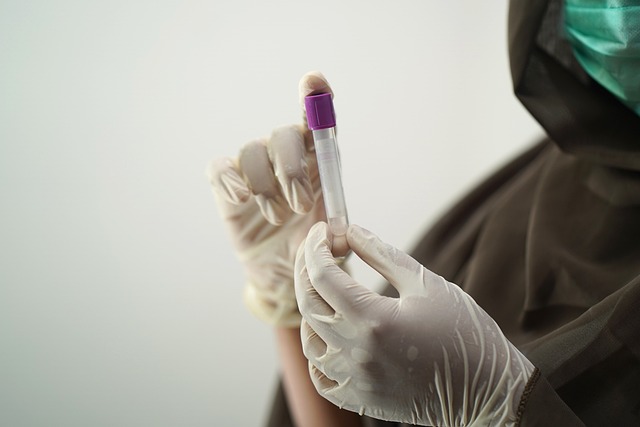In the UK, maintaining optimal health involves regular monitoring of vitamin levels, particularly Vitamin D and B12, due to the country's often cloudy weather and dietary habits. Both vitamins are essential for different aspects of health—Vitamin D supports bone health and immune function, while Vitamin B12 is vital for brain health, energy metabolism, and nerve function. Individuals in the UK can easily access Vitamin B12 blood tests UK through the NHS, especially those over 50, vegetarians, vegans, or with digestive issues that might affect absorption. Regular testing helps prevent deficiencies that could lead to health issues like osteomalacia or cognitive decline. Healthcare providers use these tests to tailor personalized wellness plans, considering individual risk factors and health profiles. The NHS suggests that Vitamin D levels below 25 nmol/L may indicate a deficiency, which might require supplementation or dietary changes. It is crucial for individuals to discuss their test results with a healthcare provider to receive appropriate guidance on maintaining these vital nutrients at healthy levels. Regular checks and informed medical advice are key to safeguarding health in the UK context.
sunshine vitamin’s role in health, understanding its levels through testing is pivotal for maintaining overall wellness. This article delves into the significance of Vitamin D levels testing and complements it with insights on Vitamin B12 Blood Tests in the UK. We explore the importance of regular monitoring of these essential nutrients, shedding light on the process and interpretation of results to guide you towards a healthier lifestyle.
- Deciphering Your Health with Vitamin D Levels Testing and Vitamin B12 Blood Tests in the UK
- The Importance of Regular Vitamin D and B12 Monitoring for Optimal Wellness
- Understanding the Process and Interpreting Results of Vitamin D and B12 Blood Tests in the UK
Deciphering Your Health with Vitamin D Levels Testing and Vitamin B12 Blood Tests in the UK

In the UK, maintaining optimal health involves a multifaceted approach that includes regular testing to monitor essential vitamin levels within the body. Vitamin D levels testing is particularly pertinent due to the country’s often overcast climate, which can impede the skin’s natural synthesis of this vital nutrient. Adequate Vitamin D levels are crucial for bone health, as it aids in calcium absorption and maintains strong teeth and bones. Beyond its skeletal benefits, Vitamin D also plays a significant role in immune function and overall wellbeing. Similarly, Vitamin B12 blood tests are essential for individuals concerned with energy levels, brain health, and the prevention of anaemia. The UK population may be at risk of B12 deficiency, particularly those over 50, vegetarians, or vegans, as natural dietary sources are primarily animal-based. A B12 deficiency can lead to a host of issues including fatigue, weakness, and cognitive decline. Regular blood testing for Vitamin B12 is therefore crucial for early detection and intervention. Both Vitamin D levels testing and Vitamin B12 blood tests in the UK are accessible through NHS services or private healthcare providers, ensuring that individuals can monitor their levels and take proactive steps towards maintaining their health. It’s advisable to discuss with a healthcare provider the frequency of these tests based on individual risk factors and health status to ensure the most accurate and personalised approach to wellness.
The Importance of Regular Vitamin D and B12 Monitoring for Optimal Wellness

Regular monitoring of vitamin D and B12 levels is a critical aspect of maintaining overall wellness, particularly for individuals in the UK where dietary intake and sunlight exposure can vary significantly throughout the year. Vitamin D, synthesized by the skin upon exposure to sunlight, plays a pivotal role in calcium homeostasis, bone health, immune function, and has been linked to a host of other health benefits. A vitamin D blood test measures the levels of this nutrient in the body, providing valuable insights into one’s wellness status. For those who spend less time outdoors or have darker skin tones, which can affect vitamin D synthesis, regular testing is particularly important to avoid deficiency and its associated health risks.
Similarly, Vitamin B12 is crucial for the production of red blood cells and the proper functioning of the nervous system. It is naturally found in animal products, making it a nutrient of concern for vegetarians and vegans, as well as those with digestive disorders that may impair absorption. A Vitamin B12 blood test UK can ascertain if an individual’s levels are within the optimal range, ensuring their cognitive function, energy levels, and overall health remain supported. Regular checks are advised, especially for those at higher risk of deficiency, to prevent conditions like anemia or neurological problems associated with B12 insufficiency. Both vitamins D and B12 are integral to wellbeing, and their levels should be monitored regularly as part of a comprehensive health strategy.
Understanding the Process and Interpreting Results of Vitamin D and B12 Blood Tests in the UK

In the United Kingdom, maintaining optimal levels of Vitamin D and B12 is crucial for overall wellness, as both nutrients play significant roles in health. A Vitamin B12 blood test in the UK is a straightforward procedure that measures the concentration of this vital vitamin in the bloodstream. It’s available through the NHS for those at risk of deficiency, including older adults, vegetarians, and vegans. The test typically involves a simple finger-prick sample or a venous blood draw, with results indicating whether levels are sufficient to support cognitive function, energy metabolism, and nerve health. Similarly, Vitamin D levels can be assessed through a blood test, which is also widely accessible in the UK. This vitamin is pivotal for bone health, immune function, and overall well-being. The test results will determine if an individual’s Vitamin D levels are adequate to prevent deficiency-related conditions such as osteomalacia or osteoporosis. Both tests should be interpreted by a healthcare professional who can assess whether supplementation is necessary based on the serum concentrations of these vitamins. For instance, in the UK, the NHS guidelines suggest that a Vitamin D level below 25 nmol/L may indicate a deficiency and prompt a recommendation for dietary or supplemental intervention to bolster levels back to a healthy range. Interpreting the results of these tests is a nuanced process, as individual requirements can vary based on age, lifestyle, and health conditions. Therefore, it’s essential to consult with healthcare providers for personalised advice following the receipt of blood test results.
Regular vitamin D and B12 monitoring plays a pivotal role in maintaining overall wellness, as outlined in this article. In the UK, understanding your health through reliable testing is facilitated by accessible vitamin D levels testing and vitamin B12 blood tests. These assessments are not merely diagnostic tools but are integral to personalised healthcare strategies. By interpreting the results of these blood tests, individuals can tailor their dietary and lifestyle choices to optimise their health outcomes. It is evident that the UK’s healthcare system recognises the significance of these nutrients in maintaining bodily functions and overall vitality. Consequently, for those seeking a comprehensive approach to health, regular vitamin D and B12 monitoring through blood tests in the UK stands as a commendable resource for sustained wellness.
